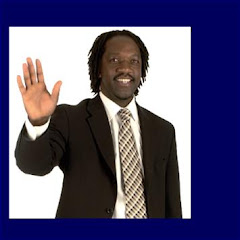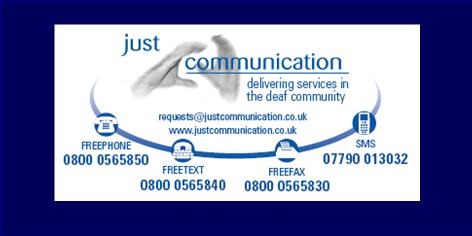There's a full house during the dinner rush at Mozzeria, a month-old Italian restaurant and pizzeria writes Paolo Lucchesi for the San Francisco Chronical (04/01/12).
Every one of the 45 or so seats is full. There's a slight hint of smoke in the air, thanks to the huge wood-fired oven in the middle of the narrow dining room. Music is playing, but the din is noticeably muted.
A waitress carrying two full plates meanders through the crowd, stopping short of a standing patron blocking her path. With both hands full, she can't tap him on the shoulder. And before sidestepping and successfully swiveling by, she can't ask him to move, because the diner is deaf. And so is she.
Mozzeria may be the first restaurant run by a deaf couple in a major city. The owners, the husband-and-wife pair of Melody and Russell Stein, were both born deaf. Their children, 10-year-old Rylan and 12-year-old Taysia, can hear and are frequent presences in the restaurant. Russell Stein's mother helps out, too.
Yet Mozzeria is more than an endearing family effort. It's already become a beacon for the Bay Area's close-knit deaf community.
Melody Stein was born in Hong Kong and moved to Fremont at age 6. She attended Washington, D.C.'s Gallaudet University, where she met her future husband. He was from a similar big-city background, the pizza mecca that is New York.
After spending nearly a decade in South Dakota, working for a nonprofit organization serving deaf people, they decided it was time for a change. (Though one of their innovations would come in handy in their second careers.) When they moved to San Francisco, a restaurant wasn't in the plans. But that quickly changed.
"I couldn't see myself working at (nonprofit organizations) for the next 10 years, and traveling wasn't good for my family," Melody Stein said in an interview conducted by typing side by side on laptops. Instead, she decided to take after her parents, who are in the restaurant business. "Since I was a kid, I always wanted to run a restaurant," she said.
For training, she attended hospitality school, and went on a gastronomic tour of Italy. Both Steins are self-trained in the kitchen.
After two years of planning, fundraising, real estate bidding wars and the usual construction adventures, Mozzeria opened on Dec. 9, on 16th Street near Guerrero.
Opening a restaurant is never easy for anyone, but the current tech age made the bureaucratic process easier for the Steins, with tools like e-mail and iPhones. Melody Stein has chronicled the entire process, from the chimney installation to the health inspection, on her blog at mozzeria.com.
Technology is key to relating to customers, too. For deaf patrons who call the restaurant for takeout, Mozzeria uses a video relay service, a groundbreaking system that Russell Stein helped develop in his South Dakota career. It features an American Sign Language interpreter relaying a conversation between the two callers.
But for Melody, the biggest surprise of the opening process - aside from the difficulty of getting a small-business loan - was getting feedback from the hearing customers, some of whom have complained on Yelp about the lighting and the music. The Steins say the early reviews have been helpful in figuring out what people want.
The Mozzeria staff consists of eight rotating servers. All are fluent in ASL, and three are deaf. In the kitchen, two dishwashers are deaf, and the third knows ASL.
Most cooks can hear, and the ones who don't know sign language use creative ways of communicating, often jotting quick notes on a dry-erase board in the back kitchen.
There haven't been any major hiccups so far.
"Communication is not a problem, period," said line cook Franklin Grammar, who believes the universal language of restaurant kitchens trumps any potential hurdles. "With the dishwashers, you can look into each other's eyes and know."
The attitude extends to the entire restaurant. The goal is simply to be a great restaurant that all people - hearing and deaf - can enjoy.
"I want Mozzeria to be known for its pizzas and other Italian food, not for deafness," said Melody Stein, noting that they've already established regulars of all sorts.
Still, it's hard to ignore that, on many nights, the clientele is predominantly deaf.
"We are always the only deaf people in restaurants, always," Russell Stein said. "Now it's sometimes the reverse."
Yet the feeling at Mozzeria seems primarily one of locals enjoying a communal setting.
"It's simple cooking, which I love," Grammar said. "There's an aspect of family here. It's a lot bigger than any individuals."
Mozzeria, 3228 16th St. (near Guerrero Street), San Francisco; (415) 489-0963. mozzeria.com. Dinner Tuesday-Sunday; brunch Saturday-Sunday.





